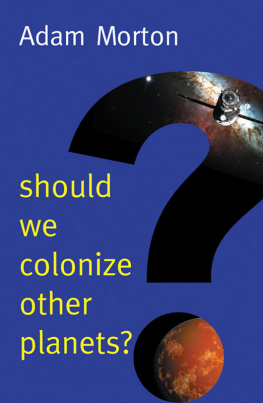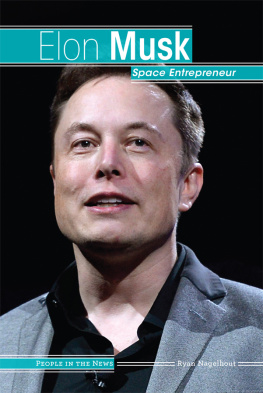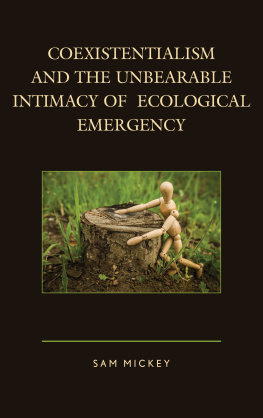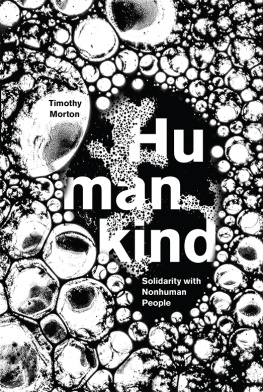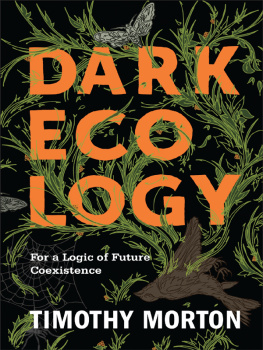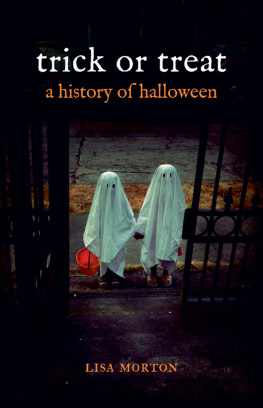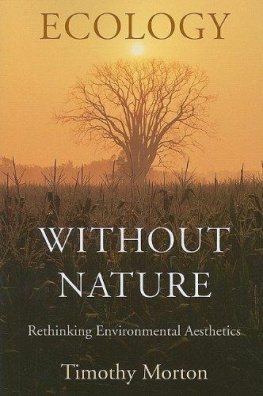
Series page
New Human Frontiers series
- Nigel M. de S. Cameron, Will Robots Take Your Job?
- Harry Collins, Are We All Scientific Experts Now?
- Everett Carl Dolman, Can Science End War?
- Mike Hulme, Can Science Fix Climate Change?
- Sheila Jasanoff, Can Science Make Sense of Life?
- Margaret Lock & Gisli Palsson, Can Science Resolve the Nature/Nurture Debate?
- Hugh Pennington, Have Bacteria Won?
- Hilary Rose & Steven Rose, Can Neuroscience Change Our Minds?
Copyright page
Copyright Adam Morton 2018
The right of Adam Morton to be identified as Author of this Work has been asserted in accordance with the UK Copyright, Designs and Patents Act 1988.
First published in 2018 by Polity Press
Polity Press
65 Bridge Street
Cambridge CB2 1UR, UK
Polity Press
101 Station Landing
Suite 300
Medford, MA 02155, USA
All rights reserved. Except for the quotation of short passages for the purpose of criticism and review, no part of this publication may be reproduced, stored in a retrieval system or transmitted, in any form or by any means, electronic, mechanical, photocopying, recording or otherwise, without the prior permission of the publisher.
ISBN-13: 978-1-5095-2511-9
ISBN-13: 978-1-5095-2512-6 (pb)
A catalogue record for this book is available from the British Library.
Typeset in 11 on 15 pt Adobe Garamond
by Toppan Best-set Premedia Limited
Printed and bound in Great Britain by CPI Group (UK) Ltd, Croydon
The publisher has used its best endeavours to ensure that the URLs for external websites referred to in this book are correct and active at the time of going to press. However, the publisher has no responsibility for the websites and can make no guarantee that a site will remain live or that the content is or will remain appropriate.
Every effort has been made to trace all copyright holders, but if any have been inadvertently overlooked the publisher will be pleased to include any necessary credits in any subsequent reprint or edition.
For further information on Polity, visit our website:
politybooks.com
Acknowledgements
In writing this book I have had helpful suggestions from and discussions with a number of people. I should mention Susanna Braund, Richard Johns, Toph Marshall, Lije Milgram, Pascal Porcheron, Mark Trischuk, and two anonymous readers from Polity. Of course I have not taken all their advice or answered all their objections.
One
Escape from Earth?
The aim of this book is to look critically at some of the arguments for thinking that human beings should travel and colonize beyond the earth. Why should we want to leave this beautiful planet to which we are so well adapted? Some of these arguments suggest escapes from dangers facing the human species, and others are driven by scientific curiosity and the love of adventure. This chapter describes the dangers, alternatives to the standard colonization proposals. At the end there is a very short conclusion drawing some general morals. I argue that the dangers to a colony are greater than we often suppose, that the costs are likely to be higher, and that we are ignoring serious alternatives and possibilities. Moreover, there are hard questions about the desirability of colonization. The first topic dangers and costs is a matter of finding the right facts. This is not always easy, but it is common in discussions of topics like this. The second topic which alternatives we want is a matter of making readers confront what on reflection they value. These are moral arguments and work by setting up suitable reflection. They are not common in this kind of topic, and it is a novel aspect of this book to give them equal weight. We begin with the dangers. What are they?
Earth is not heaven. Many things go badly on our planet: some of these are old, by earthly standards, some are new, some are less than they used to be, and some we are making worse. The Four Horsemen of the Apocalypse traditionally Conquest, War, Famine, and Death, though more modern names are enslavement/inequality, war, environmental damage, and murderous hatred are still on the horizon and have the capacity to extinguish the human species. War and environmental damage are the species killers, but they are abetted by inequality and hatred. Inequality and famine promote hatred and raise the risk of war. (We have dodged nuclear war for seventy years, for reasons that no longer seem clear, but have substituted a large number of terrible but less catastrophic conflicts.) The number of nuclear nations has grown, and some of them have fanatical and irresponsible rulers. The dangers to human life are not confined to the destruction from the bombs themselves: fallout, destruction of crops, and nuclear winter would kill far more, possibly all of us.
Hatred can obviously lead to war. But private hatred can be large-scale also. The greatest danger exploits biotechnology. Viruses can be designed, manufactured, and targeted to order these days. A variant of the Ebola virus, for example, that spread not just via blood and other fluids but also through the air, perhaps on people's breath, would have catastrophic possibilities. Most viruses have reservoirs in animal populations from which they can mutate and find ways of infecting humans. With greater density of human population, diseases spread more readily; we use more intensive farming methods, and in some parts of the world we hunt and eat animals to which we did not pay much attention before. People travel more readily in the contemporary world, and air travel is so rapid that a person can get on a flight showing no signs of a disease and be highly infectious when they arrive at their destination. The great danger is of a mutation in a virus with the terrible combination of three factors. It would come to be transmitted readily from person to person; it would become more deadly by finding a chink in human immune defences; and it would have an incubation period between infection and presentation of symptoms which allowed it to spread by air travel around the globe before governments realized what was going on. Such a disease could take an enormous toll of human life and might set civilization back for centuries. It could threaten the survival of the species. It could happen as a result of bad luck plus modern conditions of life. But it could also happen by deliberate design, through the targeting of some nation or ethnic group, and then spread to cover the globe and all of humanity.
These are the evils that our species brings upon itself. There are also evils that come from outside. The threat most often mentioned is an asteroid strike. It has features in common with other catastrophes, so I will give it perhaps disproportionate attention. Asteroids are big chunks of rock which are numerous in the outer reaches of the solar system and occasionally wander inwards, where they can strike planets. The surfaces of other rocky planets are pitted with craters from the impact of asteroids. They are also visible on Earth to those who know what to look for, showing past asteroid strikes on this planet, but they are less obvious because of oceans, vegetation, and the constant churning of the earth's surface associated with continental drift. The best-known asteroid impact is the one that many believe to have played a role in the extinction of the dinosaurs (except for birds). The theory is that, around 66 million years ago, an asteroid as large as 15 km across struck the earth at the coast of Yucatn. It would have created a worldwide cloud that lasted a year and was thick enough to inhibit photosynthesis, thus depriving animals of food and extinguishing many species. Fate is chancy: an impact in the deep ocean which covers most of the earth, or in less sulphur-rich rock, might have been less devastating. If something similar happened tomorrow, the survival of the human species would be far from guaranteed.
Next page
